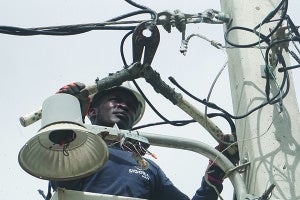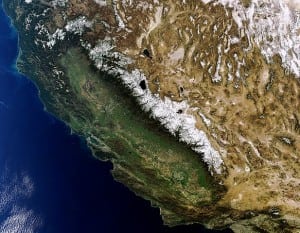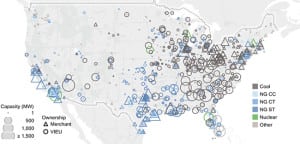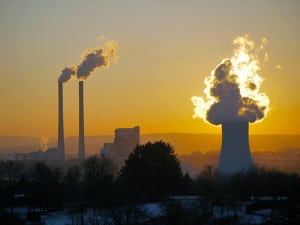reliability
-
O&M
Reliability, Resiliency Key to Caribbean Rebuild
As another hurricane season approaches, the lessons learned by energy companies that have repaired power infrastructure in Haiti, Puerto Rico, and other areas provide a path forward for reducing the impact of
-
Legal & Regulatory
FirstEnergy Entreats DOE to Save Coal and Nuclear Plants
A day after FirstEnergy Corp.’s competitive arm notified PJM Interconnection it would close four uneconomic nuclear units—a total of 4 GW—in Ohio and Pennsylvania between 2020 and 2021, it urged Energy Secretary Rick Perry to issue an emergency order directing the regional transmission organization (RTO) to secure nuclear and coal capacity for long-term reliability. FirstEnergy […]
-
Press Releases
Fairbanks Morse Delivers PoweReliability-as-a-Service Solution in Puerto Rico
SAN JUAN, Puerto Rico (March 14, 2018) — Fairbanks Morse – an EnPro Industries company (NYSE: NPO) and leading provider of solutions that are powering the world forward – announced today that it has delivered its PoweReliability-as-a-Service platform to a Fortune 500 company in Puerto Rico. The installation provides a dual fuel combined heat and power […]
Tagged in: -
Legal & Regulatory
NERC Report: Natural Gas, Renewable Generation Will Offset Coal, Nuclear Closures
A report released December 14 by the North American Electric Reliability Corp. (NERC) says power generation from natural gas-fired units and renewable sources such as solar and wind will provide enough electricity to offset the closures of U.S. coal-fired and nuclear power plants in the next decade. The agency’s 10-year outlook, part of its 2017 […]
Tagged in: -
Renewables
CAISO to Extend Contract for Oil-fired Units in Bid to Ensure Reliability
Three 55-MW oil-fired units at Dynegy’s Oakland plant in renewables-heavy California will be needed through 2018 to ensure reliability in a region served by the California Independent System Operator (CAISO), the grid entity has deemed. CAISO’s board of governors on September 19 extended a “reliability must-run” (RMR) contract for the three Oakland units. An RMR […]
Tagged in: -
Infographics
What 10 Charts from the DOE’s Grid Study Reveal About the State of U.S. Power
The Department of Energy’s (DOE’s) new grid study is based on analyses of federal government data collected between 2002 and 2017, a period it notes fostered critical developments in the nation’s power sector. Here are some of report’s most thought-provoking charts. [gss ids=”109885,109881,109883,109877,109865,109867,109869,109875,109873,109871″] For an in-depth analysis about the DOE’s grid study, see: DOE Grid Study Points Finger […]
Tagged in: -
Power
Major Power Players Issue Mixed Reactions to DOE’s Controversial Grid Study
The Department of Energy’s (DOE’s) much-anticipated study on grid resilience and reliability elicited immediate chatter from a variety of industry stakeholders, from power generators and trade groups to environmental and clean energy advocates. The 187-page study essentially notes that unprecedented changes are transforming the electricity industry. Over the past 15 years, market forces—namely, cheap natural […]
-
Legal & Regulatory
Start Generator Relay Loadability Study Now for Timely NERC PRC-025-1 Compliance
Complying with reliability standards requires considerable resource planning. The tools and suggestions provided here may help engineers conform to new generator relay loadability requirements. But compliance
Tagged in: -
Renewables
DOE’s Quadrennial Review: 8 Trends That Are Shaping the U.S. Electric System
Beyond major reliability events that have prompted regional blackouts in the past, the U.S. grid faces “imminent danger from cyber attacks,” warns the second installation of the Obama administration’s Quadrennial Energy Review (QER). Here are other key trends outlined in the comprehensive study of the nation’s electricity system. The QER, available on the DOE web site, identifies the threats, […]
-
Renewables
Reliability and Cybersecurity Top List of Issues in B&V Report
Reliability and cybersecurity ranked as the two most important issues currently confronting the electric industry, according to surveys completed by 672 qualified utility, municipal, commercial, and community stakeholders for Black & Veatch’s “2016 Strategic Directions: Electric Industry Report.” It’s not particularly surprising to see reliability rank at the top of the list. “Reliability has always […]








